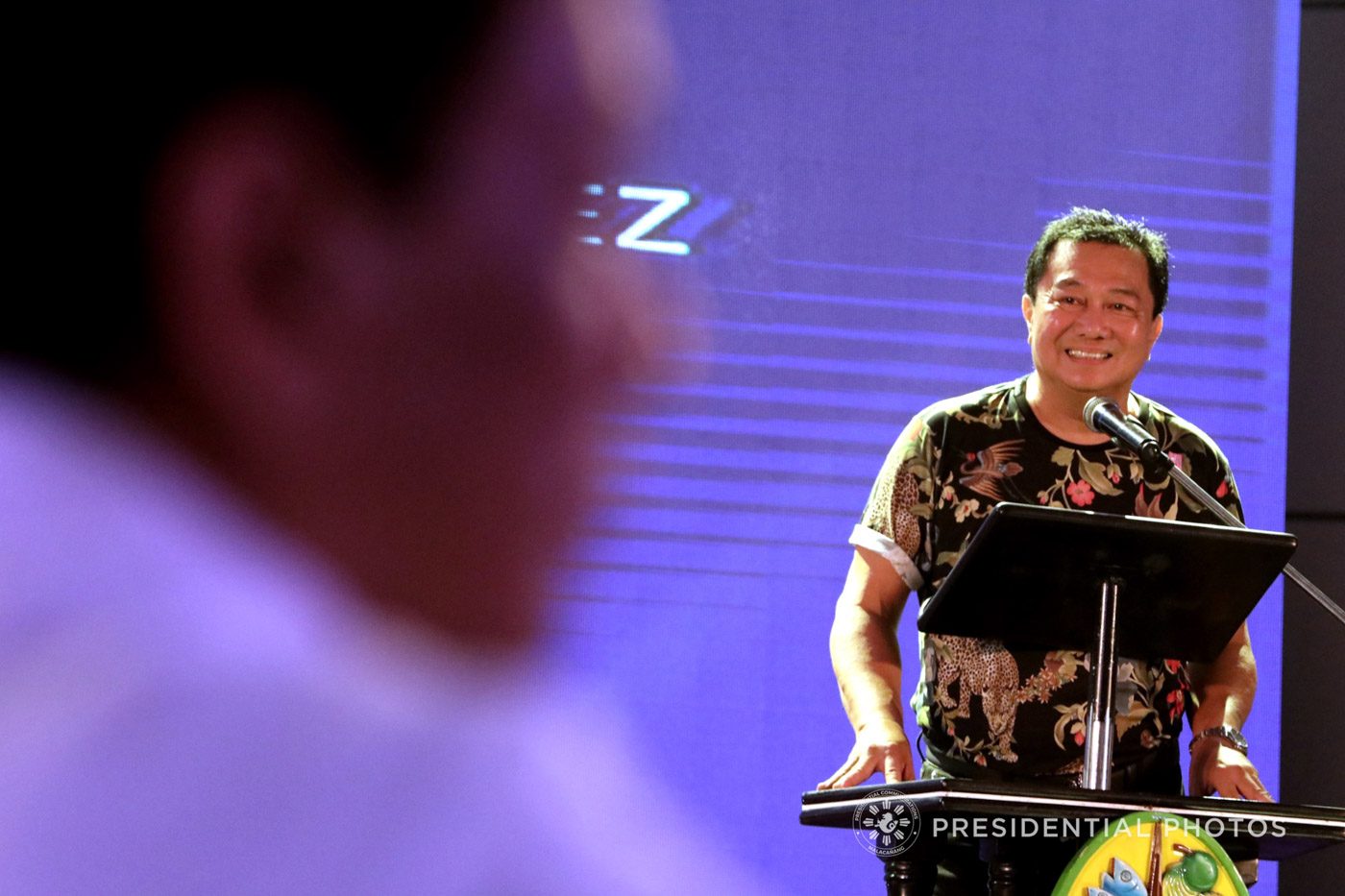SUMMARY
This is AI generated summarization, which may have errors. For context, always refer to the full article.

MANILA, Philippines – Speaker Pantaleon Alvarez is now eyeing to rally federalism supporters to start a People’s Initiative that would cancel the 2019 midterm elections and speed up the shift in the system of government.
The Davao del Norte 1st district representative floated the idea during a dzMM interview on Wednesday, July 18.
“Mag-umpisa tayo sa no election. Amyendahan natin ’yong provision na iyan. Kung ayaw ng Senado, well, puwede namang People’s Initiative. May mga tao diyan, marami, na gusto baguhin ’yong Saligang Batas. In fact, mayroon diyang mga movement for federalism, lahat iyan, hindi ba? Matagal nang umiikot iyan sa bansa, nagkakampanya,” said Alvarez.
(Let’s start with having no elections. We’ll amend that provision. If the Senate does not want to do that, well, we can do so through a People’s Initiative. There are a lot of people out there who want to amend the Constitution. In fact, there is a movement for federalism, right? They have long been campaigning around the country.)
Alvarez earlier proposed a no-elections scenario to hasten the shift to federalism, which he and President Rodrigo Duterte himself have been championing for. (READ: Alvarez proposal on no 2019 elections ‘off-tangent, misplaced’ – lawmakers)
The 1987 Constitution, however, sets the elections to be held every 3 years. For Alvarez’s no-elections proposal to be possible in 2019, the Constitution itself needs to be amended.
The 1987 Constitution provides 3 ways for amendments: through both houses of Congress convening into a Constituent Assembly (Con-Ass), through registered voters electing a new set of representatives forming a Constitutional Convention (Con-Con), or through a People’s Initiative.
A People’s Initiative must be signed by at least 12% of the total number of registered voters nationwide. Among these 12%, at least 3% of every legislative district must be represented.
Any amendments proposed by a Con-Ass, Con-Con, or People’s Initiative would have to be approved in a plebiscite, where voters across the country can either approve or reject the proposals.
No enabling law
A major hurdle for Alvarez’s proposal is a 1997 Supreme Court decision in the Defensor Santiago versus Commission on Elections case. The High Court ruled that an enabling law must first be passed by Congress to allow any charter change via People’s Initative.
Senate Minority Leader Franklin Drilon, a lawyer, also said changing the term period for officials constitutes a major constitutional amendment, which a People’s Initiative cannot propose.
“Hindi po pupuwede ang People’s Initiative. Bakit? Ito po’y revision of the Constitution, dahil sa Constitution nakalagay kung ano ang termino ng bawat opisyal,” said Drilon.
(The People’s Initiative is not an option. Why? That would be a revision of the Constitution, because the Constitution stipulates how long the term of an official is.)
“’Yon pong People’s Initiative, para lamang sa minor amendments sa Constitution. Ito pong pagpalit ng termino sa ating mga opisyales, sa akin po ay major amendment which cannot be done through a People’s Initiative,” he added.
(The People’s Initative is for minor amendments to the Constitution. Changing the term period for officials, for me, is a major amendment which cannot be done through a People’s Initiative.)
Little public support
One major problem with Alvarez’s idea for a People’s Initiative is that majority of Filipinos are not supporting shifting to federalism now, according to the latest Pulse Asia survey.
A Social Weather Stations also revealed that only 37% agreed with the federal system of government, 29% disagreed, and 34% were undecided.
Socioeconomic Planning Secretary Ernesto Pernia himself also warned that regions across the country are not yet ready to shift to a federal system of government, and the shift would “wreak havoc in terms of our fiscal situation.”
The Senate is also not set on amending the charter yet, with several senators still adamant over convening into a Con-Ass. The House of Representatives already approved a joint resolution calling both chambers to form a Con-Ass.
Both chambers also received their copies of the federal charter drafted by the Presidential Consultative Committee, but lawmakers are free to accept or ignore the body’s recommendations. – Rappler.com
Add a comment
How does this make you feel?
There are no comments yet. Add your comment to start the conversation.